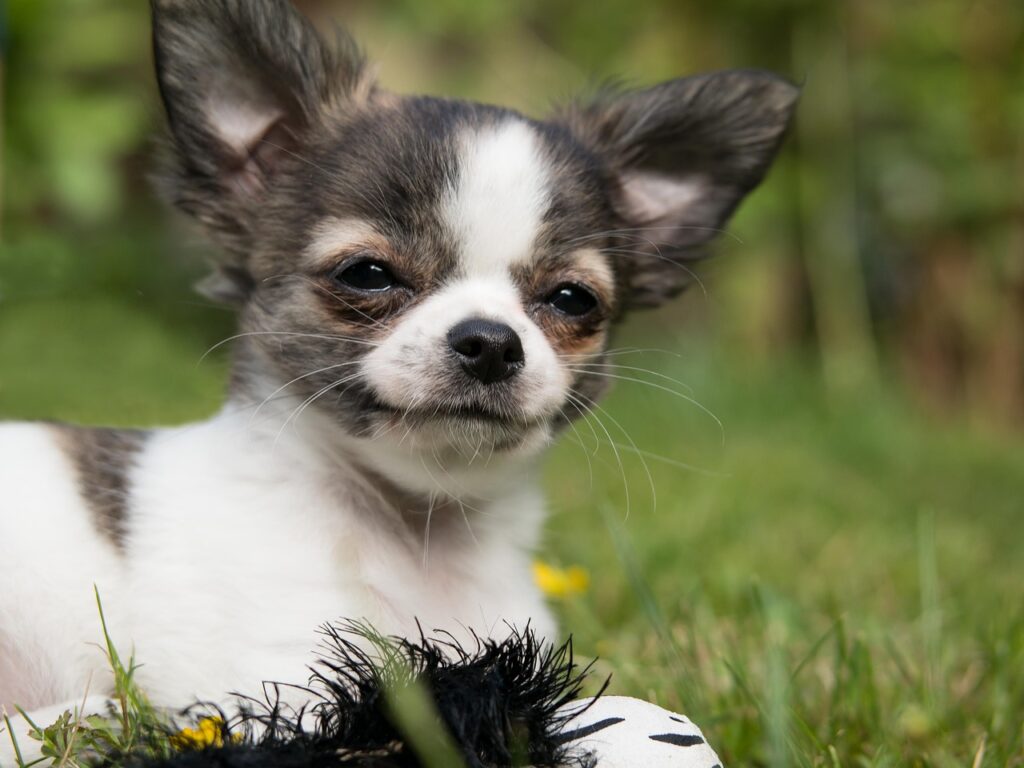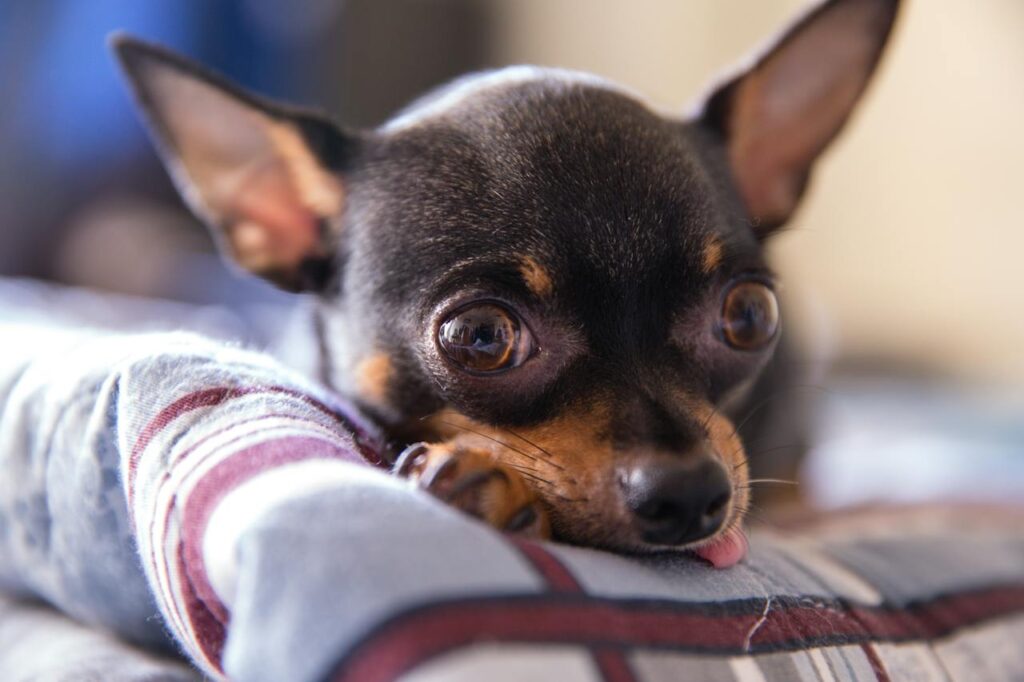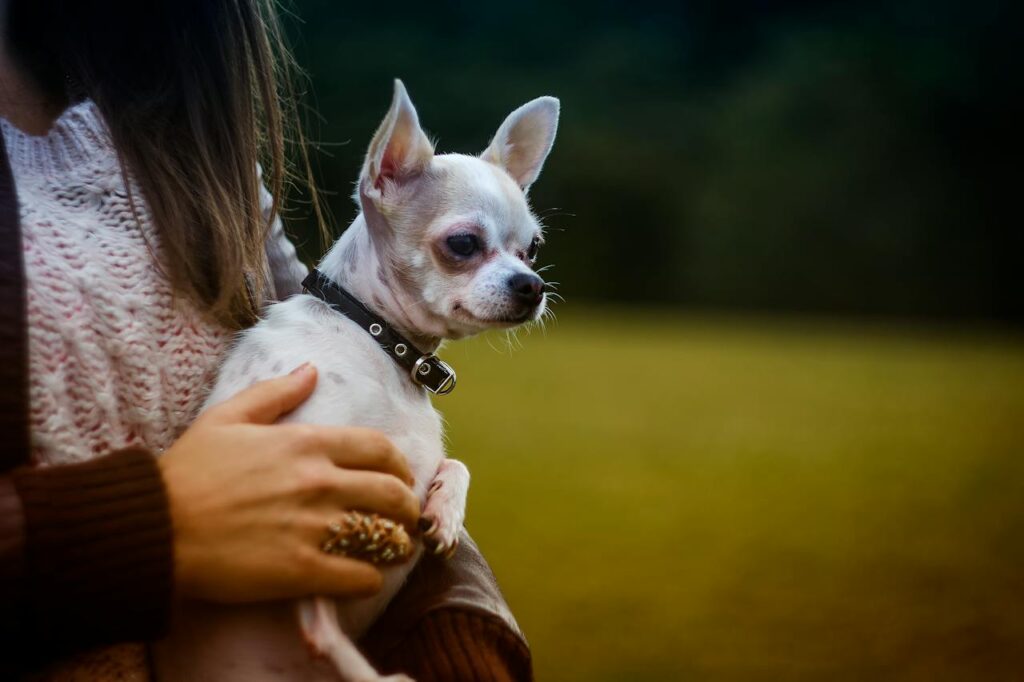Why Are Chihuahuas So Mean? Understanding the Aggressive Behavior of Chihuahuas
Chihuahuas are known for their small size and big personalities. They are often seen as cute and adorable, but they also have a reputation for being mean and aggressive. This raises the question: why are chihuahuas so mean?

One possible reason is their small size. Chihuahuas are one of the smallest breeds of dog, which makes them vulnerable and an easy target. To compensate for their size, they may become aggressive and defensive to protect themselves. Additionally, chihuahuas are known for their courage, which can sometimes manifest as aggression towards other dogs or people.
Another reason for chihuahuas’ mean behavior could be their upbringing and environment. According to PawSafe, one of the ways that owners and breeders often fail their dogs is by not understanding their communication or even willfully ignoring it. This can lead to stress and anxiety in the dog, which can then manifest as aggression. Additionally, if a chihuahua is not properly socialized as a puppy, they may become fearful or aggressive towards strangers and other dogs.
Chihuahua Temperament Traits
Chihuahuas are known for their small size, but their temperament is anything but small. These little dogs are known for their feisty and sometimes aggressive behavior. However, there are several genetic and historical factors that contribute to their unique temperament.
Genetic Factors
Chihuahuas are a breed of dog that was developed in Mexico. They are believed to have descended from the Techichi, a small dog that was kept by the Toltec civilization. The Techichi was known for its fierce loyalty and protective nature, traits that are still evident in the Chihuahua breed today.
In addition to their genetic predisposition, Chihuahuas are also known for their small size. This can make them feel vulnerable and insecure, leading to aggressive behavior as a means of self-defense. It is important for Chihuahua owners to provide a secure and safe environment to help alleviate their dog’s anxiety.
Breed History
Chihuahuas have a long and storied history. They were first introduced to the United States in the late 1800s and quickly became popular as a pet. However, their popularity also led to overbreeding and the development of health problems.
Today, Chihuahuas are still a popular breed, but they are often associated with negative stereotypes such as being yappy and aggressive. It is important to note that not all Chihuahuas exhibit these behaviors and that proper training and socialization can help prevent these issues.
In summary, Chihuahuas have a unique temperament that is influenced by both genetic and historical factors. While they may be small in size, they are big in personality and require proper care and training to help them become well-adjusted and happy pets.

Environmental Influences
A Chihuahua’s environment plays a crucial role in shaping its behavior. The way a Chihuahua is raised and the environment in which it lives can impact its behavior greatly. Chihuahuas that are raised in stressful or chaotic environments may develop fear or aggression as a coping mechanism.
Socialization
Proper socialization is essential for all dogs, and Chihuahuas are no exception. Chihuahuas that are not properly socialized will be more likely to display fear-based aggression towards unknown things, people, and animals. From around 8 weeks to around 16 weeks, puppies have a fear period. During this period, it is crucial to expose them to different people, animals, and environments to help them develop a confident and well-adjusted personality.
Training
Inconsistent training can lead to behavioral problems in Chihuahuas. Chihuahuas are intelligent dogs and respond well to positive reinforcement. Consistent training and positive reinforcement can help Chihuahuas develop good behavior and prevent them from developing aggressive behavior.
In conclusion, a Chihuahua’s behavior is influenced by various environmental factors, including socialization and training. By providing them with a stable and nurturing environment and consistent training, Chihuahuas can develop into well-adjusted and friendly dogs.
Behavioral Characteristics
Chihuahuas are known for their feisty and sometimes aggressive behavior. Understanding the reasons behind their behavior can help owners manage their dogs better.
Territorial Behavior
Chihuahuas are known to be territorial dogs. They often become aggressive when they perceive a threat to their territory or their owners. This behavior can be seen when they bark or growl at strangers or other dogs. It is important for owners to socialize their Chihuahuas from a young age to prevent them from becoming overly protective and aggressive.
Fear-Induced Aggression
Chihuahuas are also known to exhibit fear-induced aggression. This behavior is often seen when they feel threatened or scared. They may become aggressive towards people or other animals in an attempt to protect themselves. It is important for owners to identify the triggers that cause fear-induced aggression in their Chihuahuas and work to desensitize them to these triggers.
Overall, Chihuahuas are known for their big personalities and feisty behavior. Understanding the reasons behind their behavior can help owners manage their dogs better and prevent them from becoming overly aggressive.

Health and Physiology
Chihuahuas are prone to certain health conditions that can contribute to their aggressive behavior. It is important for owners to be aware of these conditions and provide proper care to their pets.
Neurological Health
Chihuahuas are prone to various neurological conditions that can affect their behavior. For example, they may suffer from seizures, which can cause them to become disoriented and aggressive. They may also suffer from hydrocephalus, a condition in which excess fluid accumulates in the brain, leading to behavioral changes.
Size-Related Behavior
Chihuahuas are small dogs, and their size can contribute to their aggressive behavior. They may feel threatened by larger dogs or people, and may lash out in an attempt to protect themselves. Additionally, their small size may make them feel vulnerable, leading to a defensive or aggressive response.
Owners can help mitigate size-related behavior by socializing their Chihuahuas from a young age. This can help them learn to interact with other dogs and people in a positive way, reducing the likelihood of aggressive behavior. Additionally, owners should provide their Chihuahuas with a safe and secure environment, where they can feel comfortable and protected.
Improving Chihuahua Behavior
If you have a Chihuahua with aggressive behavior, don’t worry, there are ways to improve their behavior. Here are some tips that can help:
Positive Reinforcement
Positive reinforcement is a great way to train your Chihuahua. This method involves rewarding your dog for good behavior instead of punishing them for bad behavior. You can use treats, toys, or praise to reward your dog. This will encourage your Chihuahua to repeat the good behavior.
When your Chihuahua behaves aggressively, do not punish them. Instead, try to redirect their attention to something else. For example, you can give them a toy to play with or take them for a walk. When they behave well, give them a treat or praise them.
Professional Training
If your Chihuahua’s aggressive behavior is severe, you may want to consider professional training. A professional dog trainer can help you identify the underlying cause of your Chihuahua’s aggressive behavior and develop a training plan to address it.
During the training, the trainer will teach your Chihuahua basic obedience commands such as sit, stay, and come. They will also teach you how to communicate with your Chihuahua effectively. This will help you establish a strong bond with your Chihuahua and improve their behavior.
In conclusion, improving your Chihuahua’s behavior requires patience, consistency, and positive reinforcement. By using these tips, you can help your Chihuahua become a well-behaved and happy dog.




